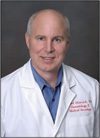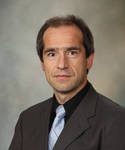The Global GIST Medical Team
The LRG Staff
The LRG Research Team
In our early years, it was our dedication to research that set the platform for our success. Our research team has significantly contributed to the body of GIST research and led the way to our current research model based on real world data and real world evidence. Read more more about the History of our Research Team.
See “Real World Evidence in Action: Our Research Model”
 Dr. Sebastian Bauer – West German Cancer Center, University of Essen, Germany
Dr. Sebastian Bauer – West German Cancer Center, University of Essen, Germany
Sebastian Bauer, M.D. graduated from the University of Wuerzburg Medical School, Germany and received his medical oncology training at the West German Cancer Center in Essen, Germany. He completed a postdoctoral fellowship at Jonathan Fletcher’s research lab (Brigham & Women’s Hospital in Boston, MA), and now works as a medical oncologist (sarcoma program) and scientist at the West German Cancer Center in Essen. His research in GIST has focused on evaluation and validation of therapeutically relevant signaling pathways in GIST.
 Dr. Christopher Corless – Oregon Health & Science University
Dr. Christopher Corless – Oregon Health & Science University
After undergraduate studies at the University of California, Berkeley, Dr. Christopher Corless received his M.D. and Ph.D. degrees from Washington University, St. Louis. He did his residency training in Anatomic Pathology at the Brigham & Women’s Hospital, Boston, where he also completed fellowship training in GI Pathology and GU Pathology. In 1994, he joined the faculty of Oregon Health & Science University, as an Assistant Professor. He has served as the residency program director in Pathology and is currently medical director of surgical pathology for OHSU Hospital. He is also director of the Cancer Pathology Shared Resource for the Oregon Cancer Institute. In addition to practicing surgical pathology, Dr. Corless has expertise in the application of molecular diagnostics to the classification and prognostication of solid tumors. An author on over 125 publications, he was promoted to Professor of Pathology in 2004. Dr. Corless is lending his expertise as leader of the Primary Resistance Project.
 Dr. Maria Debiec-Rychter – Catholic University of Leuven. Belgium
Dr. Maria Debiec-Rychter – Catholic University of Leuven. Belgium
Dr. Maria Debiec‐Rychter obtained an M.D. degree (1978) and Ph.D. degree in Somatic Genetics (1986) from the Medical University of Lodz, Poland. She remained at the University of Lodz as an Associate Professor until 1989, when she became a visiting scientist to the Michigan Cancer Foundation, Detroit, MI. Dr. Debiec‐Rychter has worked with Wayne State University, Detroit, MI and the Armed Forces Institute of Pathology, Washington, DC. She has been appointed as an Associate Professor at Catholic University of Leuven, Belgium since 1999. Her research interests are related to the cytogenetic and molecular characterization of solid tumors, and cancer-related targeted therapy. Currently, she is involved in the studies of the molecular mechanisms of resistance to imatinib in GIST patients. Dr. Debiec‐Rychter is leading the Stable Disease Project.
 Dr. Anette Duensing – University of Pittsburgh Cancer Center
Dr. Anette Duensing – University of Pittsburgh Cancer Center
Dr. Anette Duensing studied medicine in Germany and the U.K., and received her M.D. from the University of Hannover Medical School, Germany. She wrote her dissertation on molecular genetics of liver tumors in the Department of Pathology at the University of Hannover Medical School. Dr. Duensing then completed three years of residency training in this department, where she participated mainly in the morphological and molecular diagnosis of hematological diseases. In 1999, Dr. Duensing joined Dr. Jonathan Fletcher’s laboratory at the Brigham and Women’s Hospital in Boston for a post‐doctoral fellowship. In the past few years, she has been leading the GIST‐related studies in Dr. Fletcher’s lab. During that time, most of her research was focused on activated intracellular signaling pathways in GISTs that are triggered by the mutant KIT protein. This research has led to the identification of proteins which might be targeted by new kinase inhibitors as a complement to KIT inhibition. Since 2003, Dr. Duensing is Research Assistant Professor in the Department of Pathology at the University of Pittsburgh Medical School.
 Dr. Jonathan Fletcher – Brigham and Women’s Hospital
Dr. Jonathan Fletcher – Brigham and Women’s Hospital
Dr. Jonathan Fletcher is a medical and pediatric oncologist whose clinical activities are in cancer diagnostics with a focus on molecular and cytogenetic methods. His laboratory program is studying tyrosine kinase (such as KIT and PDGFRA) mechanisms in sarcomas. He has developed novel methods for rapid profiling of tyrosine kinase activation in frozen human tumors, and these techniques have identified effective therapeutic targets in several types of sarcomas, including GIST. His primary research aims are to identify therapeutic strategies that can synergize with KIT inhibition to cure GIST. Dr. Fletcher is head of the Life Raft Group’s Research Team as well as leading the KIT Degradation and Resource Development Projects.
 Dr. Michael Heinrich – Oregon Health & Science University
Dr. Michael Heinrich – Oregon Health & Science University
Dr. Michael Heinrich is currently a Professor of Medicine at Oregon Health & Science University. He earned his medical degree in 1984 from Johns Hopkins School of Medicine in Baltimore and completed both his residency training and Hematology and Medical Oncology fellowship at OHSU. His primary research interest is in the development of novel tyrosine kinase inhibitors for treatment of human cancers. Dr. Heinrich’s research includes both pre‐clinical identification of novel molecular targets and testing of new agents in the laboratory and the clinic. Dr. Heinrich is leading the KIT Degradation Project.
 Dr. Matthew van de Rijn – Stanford University Medical Center
Dr. Matthew van de Rijn – Stanford University Medical Center
Matt van de Rijn received his M.D. and Ph.D. degrees from the University of Amsterdam in 1986. Subsequently, he performed a postdoctoral fellowship in the laboratory of Dr. Irving Weissman, which was followed by residency training in surgical pathology at Stanford University Medical Center. He next worked as an assistant professor in the Department of Pathology and Laboratory Medicine at the University of Pennsylvania Medical Center in Philadelphia. In 1998, he returned to Stanford and is now an associate professor of pathology. Upon his return to Stanford, he started collaborating with the combined laboratories of Drs. Pat Brown and David Botstein and developed an interest in gene microarray analysis as used for gene expression profiling and comparative genomic hybridization. These techniques, combined with the technique of tissue microarrays in which gene array data can be validated by immunohistochemistry and in situ hybridization studies, now form the core of his laboratory. In his laboratory, his work is mainly focused on sarcomas with specific emphasis on leiomyosarcomas and gastrointestinal stromal tumors. His research is translational in nature and is focused on the discovery of new diagnostic markers, the discovery of new tumor subsets with different prognoses and/or different response to various treatments and the identification of new therapeutic targets. Dr. van de Rijn is hosting the Adult Tissue Bank.
 Dr. Brian Rubin – The Cleveland Clinic
Dr. Brian Rubin – The Cleveland Clinic
Dr. Brian Rubin graduated from University of California, Berkeley with a B.A. in Cell Biology in 1983. He spent the next 3 years in the Peace Corps working for the WHO Malaria Control Program in Thailand. He moved on to work as a research technician at Amgen from 1986‐1987. He attended the M.D./Ph.D. program at Cornell University Medical College from 1987‐1995. Dr. Rubin was a resident and fellow at Brigham and Women’s Hospital from 1995‐2000 where he did focused fellowships in soft tissue pathology with Dr. Chris Fletcher and a post‐doc in the lab of Dr. Jonathan Fletcher working on genomics of sarcomas including GIST. In 2000, he moved to the University of Washington where he spent 5 1/2 years as the Director of Bone and Soft Tissue Pathology. Dr. Rubin is now the director of Soft Tissue Pathology at Cleveland Clinic. He currently shares appointments at Cleveland Clinic in the Department of Molecular Genetics at the Lerner Research Institute and in the Department of Pathology. Dr. Rubin’s lab is focused on genomics and proteomics of sarcomas, targeted therapies of sarcomas and developing mouse models of sarcomas.
 Dr. Tamas Ordog, Adjunct Researcher, The Mayo Clinic
Dr. Tamas Ordog, Adjunct Researcher, The Mayo Clinic
Dr. Tamas Ordog graduated from the University of Pécs Medical School, and has done Postdoctoral Research at the University of Pécs and University of Texas Medical School at Houston. At the Mayo Clinic his research focuses around the molecular, cellular and translational biology of the gastrointestinal neuromuscular system, with particular focus on interstitial cells of Cajal (ICC). He is also involved in isolated ICC precursors and animal models of diabetes, eating disorders, aging and gastrointestinal stromal tumors we study the mechanisms-of-action of drug candidates that could be developed into novel therapies for restoring normal ICC networks and making neoplastic ICC more sensitive to targeted cancer therapy.
History of the LRG Research Team
In our early years, it was our dedication to research that set the platform for our success.
In 2005, armed with a generous two-million-dollar grant from Novartis, the LRG began assembling a team to coordinate research to overcome Gleevec resistance.
From the contacts Executive Director Scherzer had made with GIST experts, he invited four to meet at the Holiday Inn in Totowa, New Jersey for an initial conversation about assembling a formal research team. The initial four, Dr. Michael Heinrich of OHSU, Dr. Jonathan Fletcher of Dana-Farber Cancer Institute, Dr. Chris Corless of Stanford University and Dr. Brian Rubin of the Mayo Clinic set the parameters for the future. They discussed who should join the team, which was to be a synergistic team of experts with complimentary skill sets. They agreed to work collaboratively, and to meet four times per year, with two in-person meetings, as well as agreeing to share both expenditure and progress reports periodically.
After many months assembling a world-class research team, and creating a strategic research plan for GIST, in 2006 we funded ten research projects. The framework for these projects included a collaborative model designed to reach beyond institutional and national boundaries. This innovative model was created in order to expedite findings by eliminating competition, and to reduce administrative overhead in the process.
We examined the role of drug level testing and the effectiveness of Gleevec, also raising the question of how to assure compliance with an oral medication that theoretically may be taken for a life time.
A strategic plan was formulated to identify reasons for resistance, and published studies on resistance, adjuvant treatment and clinical trials.
Our patient registry was redesigned, and we continued to publish real world evidence based on analysis of our population that was helpful for both patients and researchers. We worked with Dana Farber Cancer Institute to study Familial GIST.
We continued to study the role of dosage on the survival of metastatic GIST patients.
Our researchers met yearly in-person to discuss their findings and to formulate strategies for key problems. From the second of these in-person meetings, the GIST Collaborative Tissue Bank was structured with tissue being stored at Stanford University after mutational testing is performed.
Due to the incredible generosity of a patient from the Netherlands, Jeroen Pit, Project D-Day was formed. Motivated by his desire to find a cure, both for himself and for all GIST patients, Pit raised over two million dollars for GIST research within a few weeks. Impressed by the LRG research team approach, Pit oversaw the design of a two-year strategic plan: a four-pronged strategic attack on GIST treatment resistance. The four project areas were sequencing, gene knockdown, drug screening and validation. A researcher was assigned to each of these key projects: Chris Corless, MD, OHSU, Sequencing Team; Jonathan Fletcher, MD, Brigham and Women’s Hospital, Gene Knockdown Team; Brian Rubin, MD, Cleveland Clinic, Drug Screening Team; Michael Heinrich, MD, OHSU, Validation Team.
Presentations at conferences like CTOS , ASCO and FasterCures and publications of our research outcomes in journals such as BMC Cancer and Clinical Cancer Research continued to be a part of our strategic initiatives.
Our Patient Registry continued to be a rich source of information including demographics. Our dedication to the value of patient-provided data led to the organization of Salud con Datos, a conference held in Latin America designed to promote data sharing for research.
In 2013, our research team published on “cell sleep” in the Cancer Research Journal. This was a breakthrough study in the understanding of resistance.
Our team identified over 200 mutations predicted to have biological effect, ranked 11.000 genes in several GIST cell lines in order of functional relevance, tested over 120 compounds with four drugs being singled out for possible benefit, and found that almost every GIST patient has changes in genes that affect the cell cycle and result in advanced GIST.
As our Patient Registry became more sophisticated, we published an annual “Patient Registry in Review”.
Our work resulted, either directly or indirectly, in over 150 publications by the LRG, our research team, or that provided a citation mentioning us.
